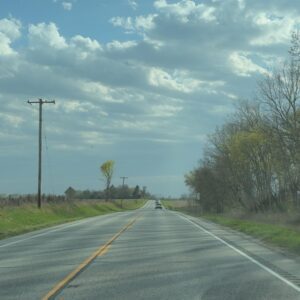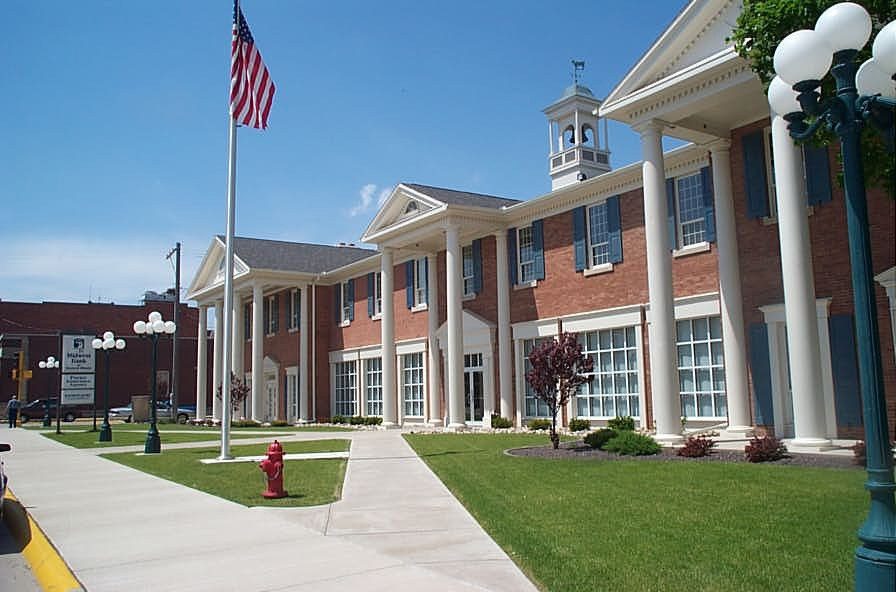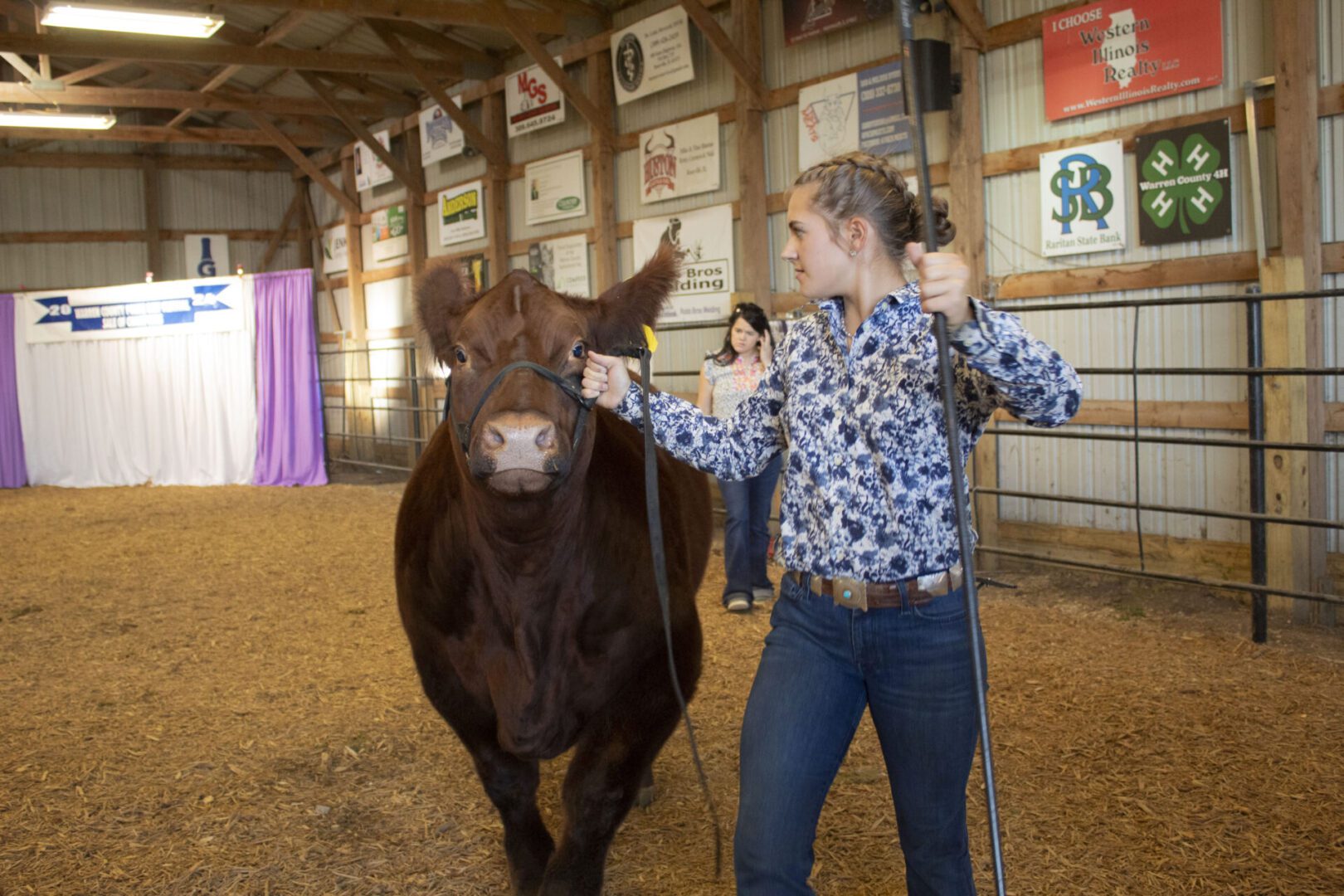Can a Muscovy duck and a chicken share a living space? Is Pungo Creek Butcher Dent and Cherokee Cornfield a good blend of corn and beans to grow with squash? And how do a pair of male engineering students (one from Pakistan) get along with a trio of female students from west central Illinois?
Those questions of co-existing are being answered daily this summer at the Monmouth College Educational Farm, where five students are working 40-hour weeks under the supervision of biology professor Eric Engstrom and retired professor Craig Vivian.
The crew includes four rising seniors – Madison Hieser of Pekin, Madison Rusk of Annawan, Cally Tate of Monmouth and Irie Woods of Avon. The non-senior is Jazib Shahid ’28 of Pakistan who, like Woods, is an engineering major.
Together, the students are learning a concept known as milpa, which is a traditional Mesoamerican farming system. Particularly associated with the Maya and other indigenous cultures, it involves intercropping maize (corn), beans and squash together, often alongside a variety of other useful plants. It has also been described as the “Three Sisters” method of companion planting, where corn, beans, and squash are grown together in a mutually beneficial way.
In general, said Tate, “We keep it pretty circular – shortening the supply chain. We re-use our corn seed and we feed our chickens the corn. We try to be as self-sustainable as possible and act in a way we really need to.”
“There are cycles to how we do things,” said Vivian, including trees that have been put through the farm’s wood chipper helping to protect the integrity of the soil where all the crops are grown.
‘Nature is cool’
The only student with prior experience on the summer crew, Tate took on the tour guide role when a group of 19 children from the Monmouth Park Program visited on July 10, one of many community outreach events the farm hosts throughout the year. The young visitors paired up and were given a clipboard to help them play a little game.
“We had them do a scavenger hunt of things they saw,” said Tate. “It was full of things they don’t normally see,” such as acorns, animal tracks and mushrooms, in addition to an assortment of bugs and other critters.
“The real goal is to come to the realization that being outside is fun,” said Vivian, referring to the children, but also naming a reason why crewmembers sign up for the gig each year. “Nature is cool.”
Why they do it
Hieser appreciates that the farm provides a tremendous learning environment, both personally and also for school-age children.
“I want to work in relation to education, but not be a classroom teacher,” said the educational studies major of one reason why she applied to work. Another was a class she took with Vivian, which included planting wildflowers at the farm.
Tate has also been under Vivian’s wing, learning the ins and outs of beekeeping, which is the professor’s specialty at the farm. “After last summer, I learned so much,” she said. “I never dreamed that I’d be a beekeeper, and now I can’t imagine life without it.”
Like Hieser, Rusk enjoys breaking free of the confines of four walls.
“I realized I wasn’t a lab person,” said Rusk, who was introduced to the farm by one of Engstrom’s courses. “I like being outdoors, doing the hard work and getting messy. It’s helped me think about the kind of jobs I want in the future.”
Both Woods and Shahid were drawn by their respective family’s histories.
“My family has been doing this for decades,” said Shahid. “I wanted to experience this myself.”
“I’m developing different personal skills and also managing different types of equipment than I normally would,” said Woods, who is used to outdoor work through his father’s roofing business.
Stars of the farm
For the past few years, Monmouth’s farm has become known for the aforementioned bees and the tasty local honey they produce, as well as a plethora of blueberries. Both products have found their way to plenty of kitchens in the Monmouth area, with the berries also finding a home at Baked, Cornucopia and The Beanhive in Galesburg and at Monmouth’s Patton Block Grill and Brew Pub and Market Alley Wines.
“Market Alley Wines uses our blueberries in a special drink, and they also use the mint from our herb garden,” said Tate.
U-pick days are a hit at the farm, and when it comes to blueberries, visitors can bring home “as many as they can pick,” said Tate. “They’re a really healthy, affordable option.”
Hieser did a quick number crunch to reveal that the record purchase this summer was a family combining to pick 19 pounds of blueberries.
“They like our prices,” she said. “Stores charge $5 for a pint, but we charge that for a quart.”
The honey is not only for sale, but it is also helping several Monmouth students conduct experiments as part of the college’s Doc Kieft summer research program. Two students are working directly with the honey itself, while another is focused on the benefits of propolis, a resin-like substance collected by bees from various plants, which they use to seal and protect their hives.
***Courtesy of Barry McNamara, Monmouth College***
















